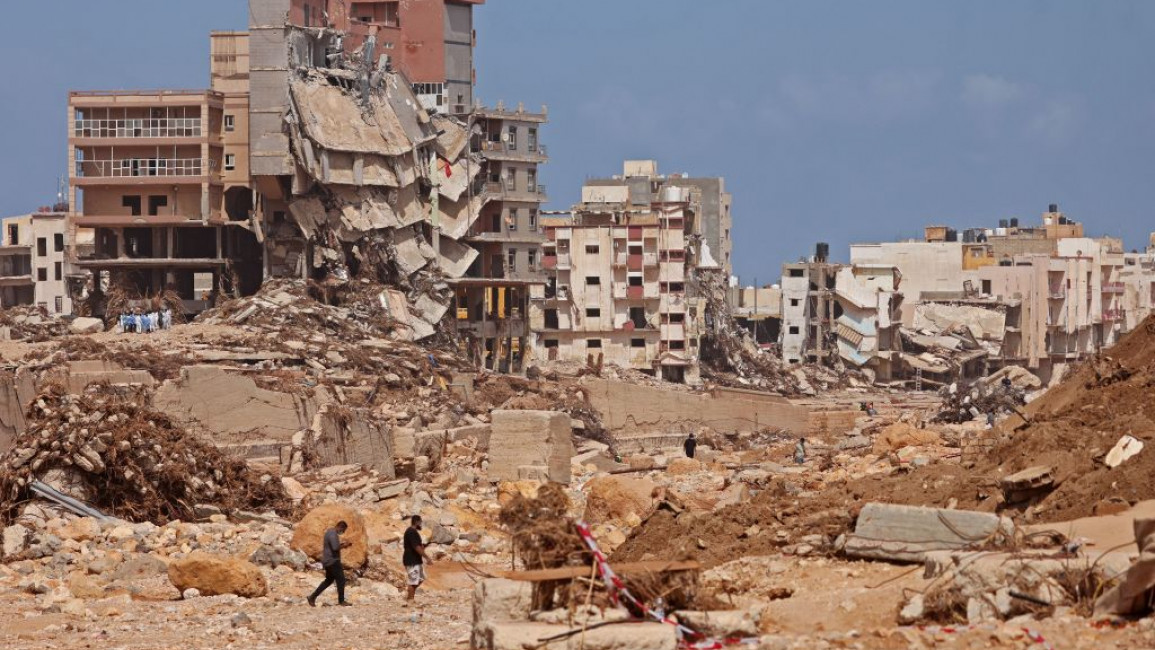Libya floods: Aid groups warn of public health crisis as sewage mixes with drinking water
Aid groups have warned of a brewing public health crisis in eastern Libya in the aftermath of devastating floods last week that killed thousands.
Drinking water in the areas worst-affected by the flood, including the town of Derna, has been "severely contaminated" with sewage, the International Rescue Committee said in a statement Monday.
At least 55 children in Derna have become sick as a result of the contaminated water, the IRC said.
Also on Monday, the charity Muslim Aid warned that the burial of flood victims in mass graves could contaminate water and engender cases of water-borne diseases amongst victims of the disaster.
"There is a growing panic that Derna will be infected with an epidemic resulting from a heavy number of bodies under the rubble and in the water," said Asif Shahab, Muslim Aid’s Humanitarian Programmes Manager.
"There is an extensive collapsing of sanitation and water treatment services. In case this happens, diseases could spread quickly in the shape of cholera, diarrhoea, dysentery, hepatitis A, typhoid etc", he added.
The warnings came as authorities in eastern Libya began a campaign to clear bodies from areas devastated by the flooding.
"The real danger emanates from the decomposition of these bodies in waters that have mixed with drinking sources," Mohammed Shalwi, an official from the Derna municipality's Environmental Sanitation Office told the Anadolu news agency.
"Here lies the heightened possibility of an environmental catastrophe."
Some 150 cases of sickness caused by contaminated water had been recorded, Shalwi said.
The floods, sparked by the powerful Storm Daniel, is the most severe natural disaster Libya has faced in over four decades. More than 3,000 people have been killed, while thousands remain missing.
Tens of thousands of traumatised residents are now homeless and badly in need of clean water, food and basic supplies amid a growing risk of cholera, diarrhoea, dehydration and malnutrition, UN agencies have warned.



